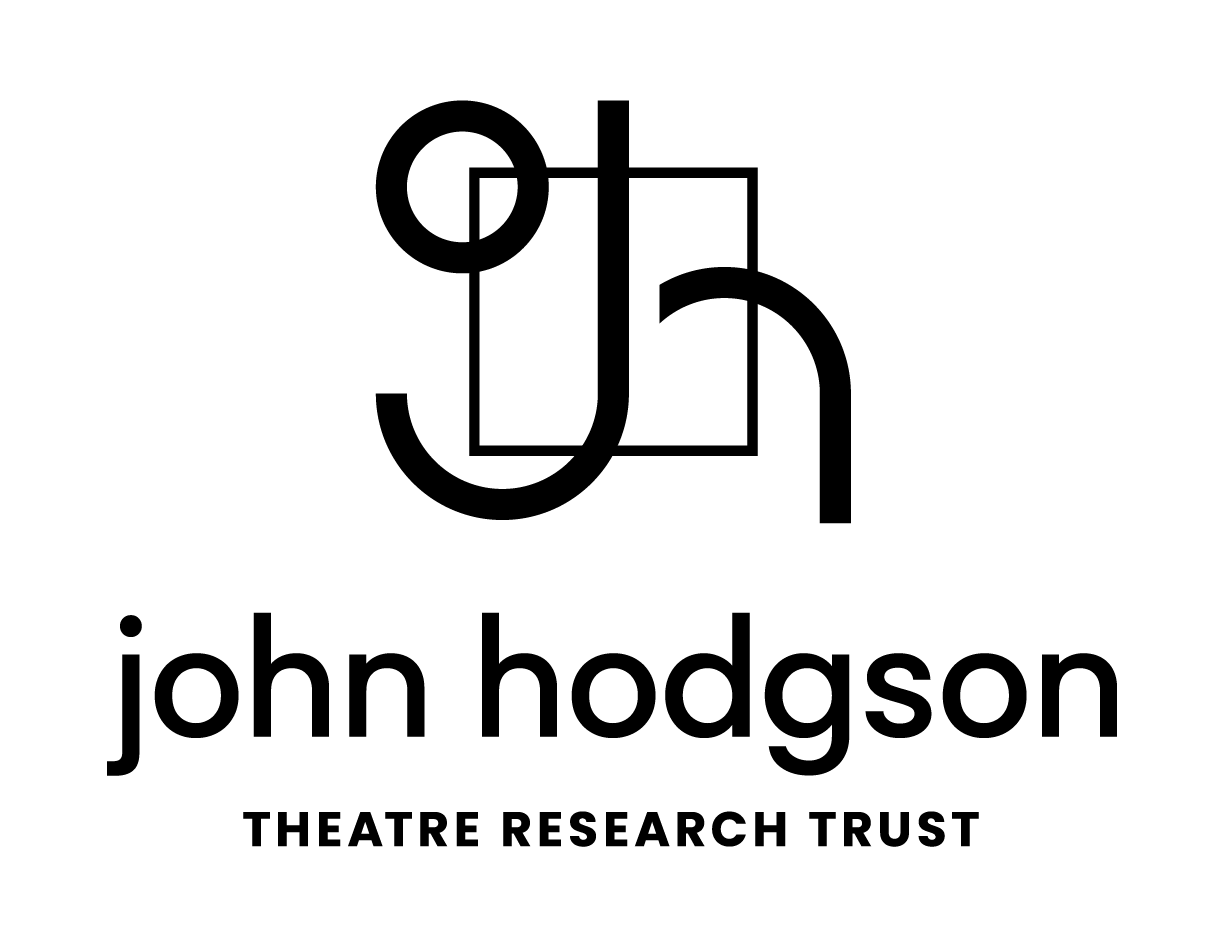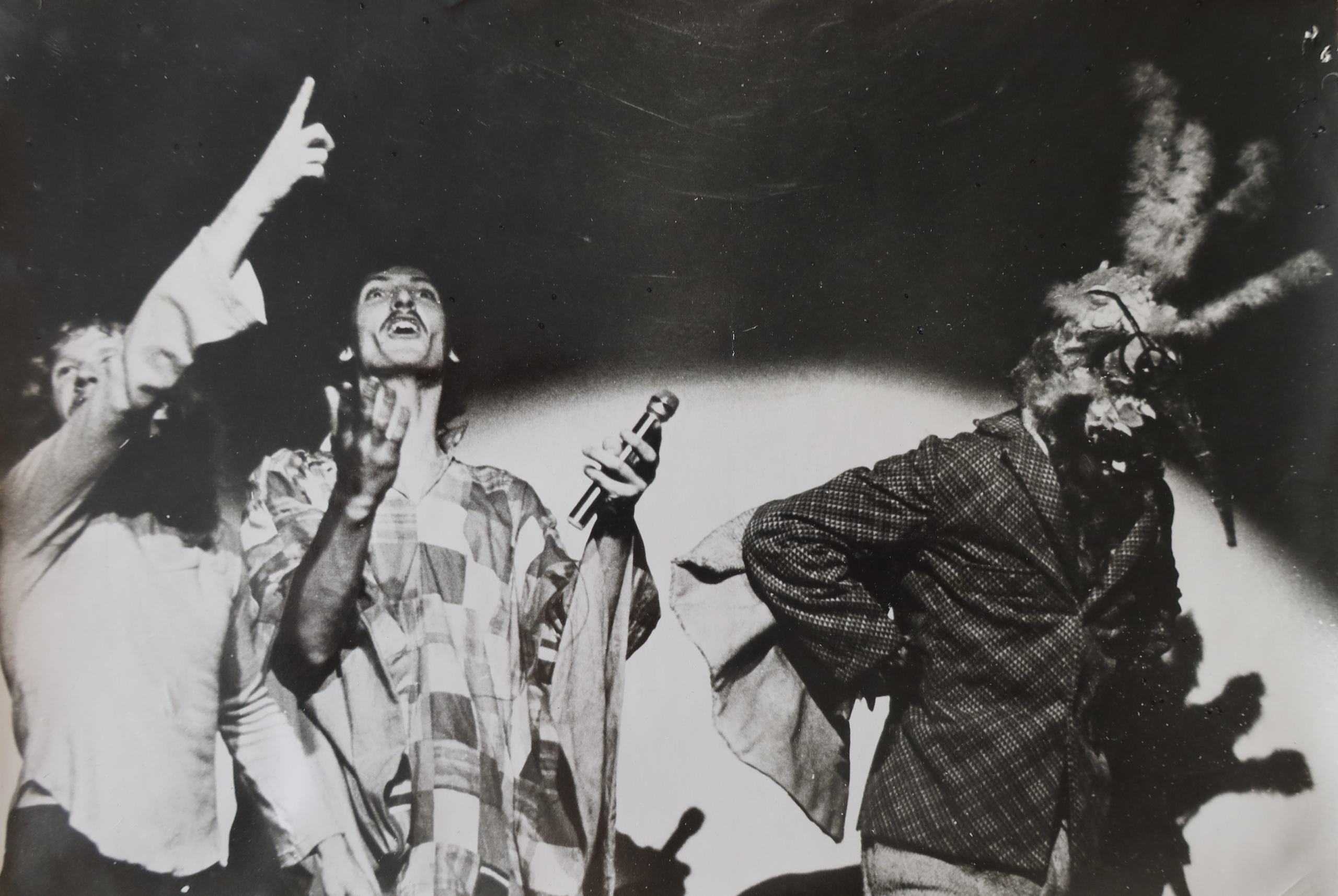
"Drama is the only art form which fully recognises our gregarious nature…"
John Hodgson was a pioneer in the world of drama and dance in education. He was a gifted and inspirational teacher, dedicating himself to encouraging the skills and passions of his students.
The John Hodgson Research Trust was founded shortly after John’s death in 1997, to encourage research into theatre arts, past and present, by offering financial grants for individual projects in these areas.
The Foundation is administered by four trustees, whose aim is to safeguard the capital, to invest it in such a way as to generate sufficient income to support a choice of projects, to invite submissions and to select and monitor the chosen projects. It also aims to promote the work of the Trust to as wide a constituency as possible to increase the number and quality of the submissions received.
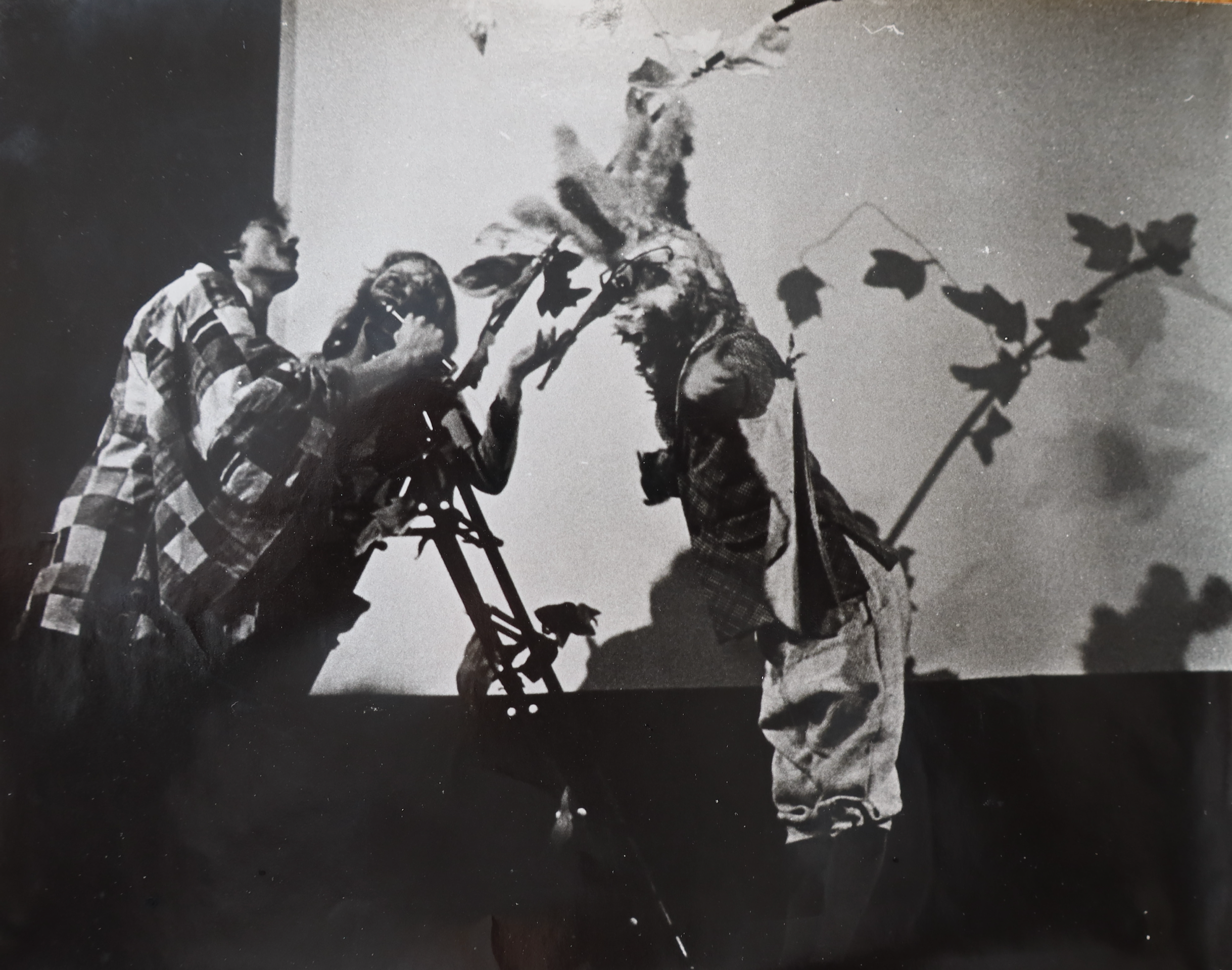
The John Hodgson Theatre Research Trust Award Winners 2024
In partnership with Leeds Year of Culture 2023 the John Hodgson Theatre Research Trust is delighted to announce the first award winners of the 10 x 10 Yorkshire region targeted search. Open to any arts practitioners living and working in the region, the trust were looking for original, investigative research ideas that not only inform individual practice but also have the capacity to shine a light on untold ideas and ways of working in the creative industries, particularly within areas that impact on makers and audiences beyond conventional theatre.
The search has resulted in two outstanding submissions from two talented artists, Gill Adams and Zoobin Surity, who will both receive the maximum awards of 10k each. The trustees were unanimous in their praise for these proposals.
UnHeard - Exploring the Intersection of British Sign Language(BSL) and Dance and
'The Hullywood Dream' - Shining a light on what compels entertainers in the clubs of Hull to keep on going - carer by day, club singer at night - both original, authentic, and personal projects
Kate Rowland from the JHTRT said 'The Trustees were so impressed with the range and diversity of ideas, and also to receive submissions for research funding that were so personal, passionate and thought-provoking. Zoobin and Gill knew what they wanted to do and why they wanted to do it. We can’t wait for them to get started with their research.'
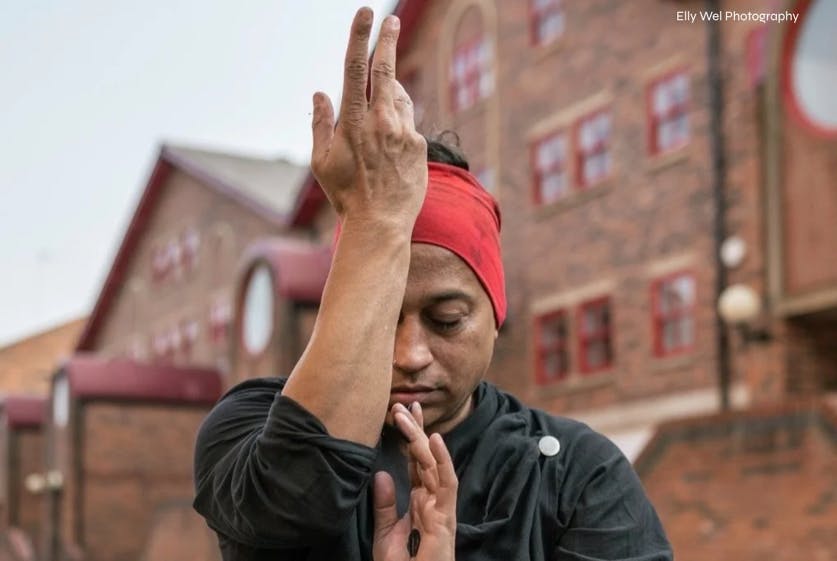
"This incredible news has sparked my soul. I am thrilled to embark on my exploration of how BSL can become an effective and wholesome part of performance. It’s heartening to know that the JHTRT have placed their trust in my vision and research. I am confident that this project will not only enrich our understanding of BSL in performance but also contribute to fostering inclusivity and accessibility within the arts community." ~ Artistic Director, Zoobin Surty Karma Dance
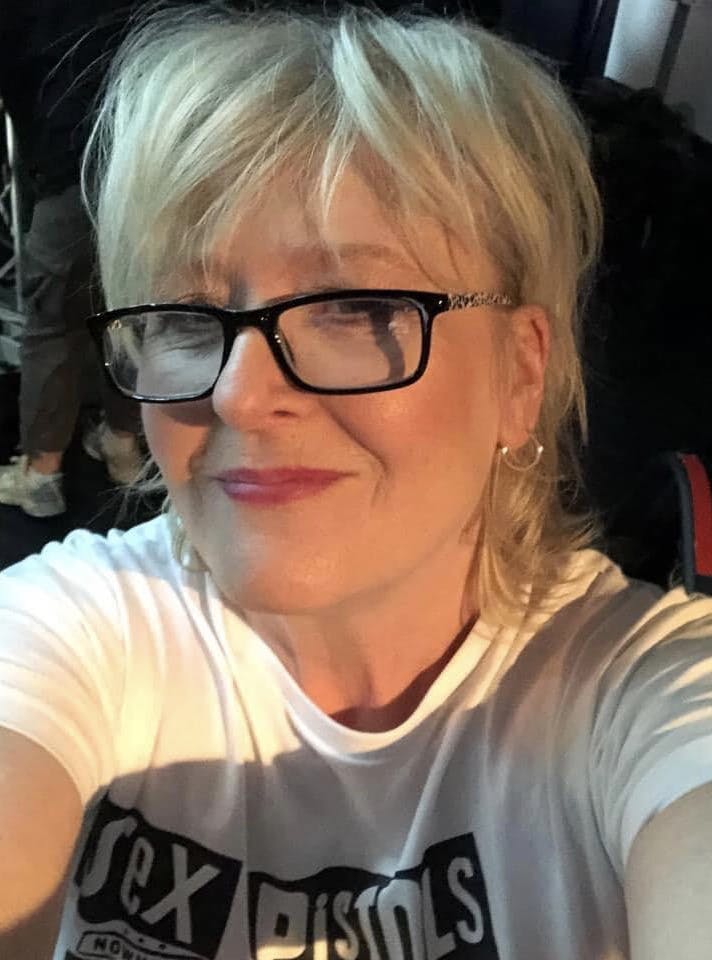
“I am excited and honoured to be chosen by the fantastic John Hodgson Theatre Research Trust. It’s just brilliant to be valued as a creative, especially by the Trust. It’s like the spark to fire me up!” ~ Gill Adams, Writer and Performer
Current and recent projects
Jocelyn Herbert Archive Design Project
Erin Lee
An unusual and valuable theatre design project, run by Wimbledon College of Art (WCA) with BA students since 2008, centred on the Jocelyn Herbert Archive, now housed in the National Theatre Archive.
“I wanted to let you know that we have had a really successful run of the UAL BA Theatre Design course over the past month. The crits were delivered yesterday and the students showed some real depth of engagement and personal exploration of their process in relation to Jocelyn's Herbert's. Outputs this year included masks, a performance, films, and objects around Herbert's productions of The Oresteia, Square Rounds and Happy Days. One group will be selected to perform their presentation alongside an exhibition on Jocelyn Herbert's work with Samuel Beckett at Wimbledon College of Art at the start of December. Thank you for your ongoing support for this project”.
‘Sorry We Didn’t Die at Sea’
Marco Young
Workshop performances and rehearsal process at Seven Dials Playhouse in 2022, supported by the JHTRT, led to a full Off West End production of Sorry We Didn’t Die at Sea at Park Theatre 13th-30th September 2023. This was the first translated contemporary Italian play to receive a full Off West End run since 1999. The translation and production were well received, with the translation text developed in the 2022 process undergoing more alterations in the 2023 rehearsals, before receiving publication with Salamander Street. None of this would be possible without the early JHTRT support, and the research process it allowed.
‘Shakespeare and Marlowe: The Queer Histories’
Joe Winters
Between 2020 and 2021 the John Hodgson Theatre Research Trust supported the development of The Queer Histories, a new amalgamated history cycle created out of the joint texts of Richard II (by William Shakespeare) and Edward II (by Christopher Marlowe). The aim was to produce a new text, fit for a twenty-first-century audience, bringing out the most exciting elements of these stories, and melding them into one epic new theatrical experience.
The initial impulse for the project came from recognizing an exciting moment in early modern dramatic history. In the late 1590s, both Shakespeare and Marlowe were exploring ideas of national identity, contemporary politics, personal loss, and much more through a series of historically located stories about crises in royal leadership.
At one exciting moment, both writers chose to focus these stories through the lead roles of what (for want of a less anachronistic word) we might call ‘queer’ kings. Edward II and Richard II reigned in the 14th and 15th centuries respectively, with only one monarch between them (Edward III). Movements in contemporary queer historiography are now revealing the extent to which these men led publicly non-heterosexual lives and the ways in which this impacted their reigns. It seemed striking, therefore, that both Shakespeare and Marlowe (who were known in their lifetimes for having sexual and romantic relationships with other men, as well as women) chose to focus on these queer former kings as a way of exploring the political temperature and personal realities of their own times.
An audience living in 1590s London would have been able (due to the rep system within which Marlowe and Shakespeare worked) to go from watching Richard II one day to Edward II the next. These texts were undoubtedly in conversation with each other; even if they were not formally constructed to be played alongside each other, their first audiences would have been likely to experience them in an unofficial repertory relationship. My desire was to strip away all the compacted earth of four-hundred years of performance history, and reveal the original way that these two texts spoke to each other: as mutually illuminating explorations of how the lives of former queer people ‘held the mirror up’ to a contemporary audience.
The support of JHTRT made possible an initial period of research and scriptwriting, resulting in a series of zoom workshops (this project was pursued during the coronavirus lockdowns of 2020/21. These workshops, which involved Omari Douglas (Cabaret, Constellations, It’s a Sin) and Alex Lawther (Hamlet, The End of the F*ing World, The Jungle) in the leading roles, revealed the possibility of writing new text in a contemporary twenty-first-century voice among the sixteenth-century text. The resulting script began with new material and gradually grew into the poetry of Marlowe and Shakespeare’s originals. This text, delivered to the trustees in 2021, will form the basis of a production led by HiranAbeysekera (Life if Pi, Winner Olivier Award for Best Actor 2022) in 2023.
‘The Making of Paradise Lost: The Opera’
Bertie Baigent
With support from the John Hodgson Theatre Research Trust, I was able to run three days of workshops for an opera project I am engaged in: an adaptation of John Milton’s Paradise Lost. For the first two days, the librettist and director (Joe Winters) and I worked intensely with six singers on material that we had produced over the last year (mainly during Covid-19 lockdowns). On the third day, we were joined by a 12-piece orchestra to realise the full musical colours of the score and consider the work in a musical as well as theatrical context.
The workshops were designed to explore three main questions: To discover new ways of connecting music and text in opera; to learn more about how to put over a complex text in a clear and comprehensible way to an audience, and to find out what opera could learn from other genres about communicating an intricate and demanding work - without seeming patronising.
The workshop was broadly successful in tackling each of these questions, though of course it also posed new ones. Parts of the music that I had written were deliberately free (‘aleatoric’) and gave substantial choices to the performers. I found that for some scenes this kind of music was able to create a static yet agitated atmosphere that matched the Affektof much of the poetic text: a kind of suspension of time while the characters’ exegeses take place. Though this kind of improvisatory aspect of uniting music and text was successful and interesting, both Joe and I felt that a more fundamental breakdown of music and text would merely confuse our adaptation of what is already an intricate narrative. We have since decided to alter the structure of our opera from a two-part form to an extended, single-act drama.
Throughout the three days, we worked extensively with the singers - especially the performer of Satan - to experiment with different styles of singing and to see how the presence of instrumentalists could alter the way the text might be delivered. We discovered a range of different kinds of declamations, suitable for different characters, scenes, and worlds.
As a result, we have substantially changed our conception of the structure of the narrative, blending various elements together to create fewer, more sophisticated scenes. We have also experimented with how alternating between singing and speech will affect how narrative is experienced by the audience, and this is most evident at the start of the work.
We’re very grateful to JHTRT for their support and look forward to keeping you informed as to how the project progresses.
‘In the advent of 9/11, how do Queer Muslim people stop hiding their true selves?’
Sal – The Nightbus
‘Sal Mohammed, The Nightbus, had their first full performance at The Pleasance Theatre in North London in February 2022…’
The opportunity to develop my first long-form performance would not have been possible without the support of the John Hodgson Theatre Research Trust. My initial line of enquiry was to explore the concept of shame – an epithet that is prevalent among monitory groups like LGBTQ* communities, People of Colour, and differently-abled people. Crudely, growing up and existing in hegemonic societies, we constantly notice how different we are in comparison to what is deemed the norm, and I wondered if being a member of more than one of these communities would compound the feelings of difference, inferiority, and ultimately shame, about one’s identity. In turn, does this impact the way we present ourselves to others? Are we cautious about how we may be treated differently, or perhaps our understanding of scenarios as they unfold is viewed through a perplexing lens informed by less-than-desirable experiences?
Applying this to myself, I realised that there were complex and challenging views I held about myself in relation to desire, sexuality, and standing up to be counted: from racially-charged encounters to a childhood filled with fear and retribution, I began to recognise that my steps into adulthood were delineated by a particular framework about how to live – a framework which ultimately indoctrinated me with the belief that I shouldn’t draw any attention to myself.
This was an incredibly difficult thread to pull on, not least because it is still so present in my everyday life. Yet I wanted to use the research and development opportunity to understand how, from my own determination, I’d managed to circumvent my ‘bottom line’ and to enter a phase of thriving rather than surviving.
Being a queer person from the global majority immigrant background, I ended up pursuing science while forging a path into performing by imposter syndrome. The opportunity to create a first sharing of ‘Shit in my Neck’ has ignited a passion to keep on making live theatre. I realise I can do this well and that people want to hear these stories – my stories. The support from JHTRT ultimately facilitated this realisation, which not only pivoted my practice but also emboldened a belief in myself that I never had prior to this. I am no longer an imposter.
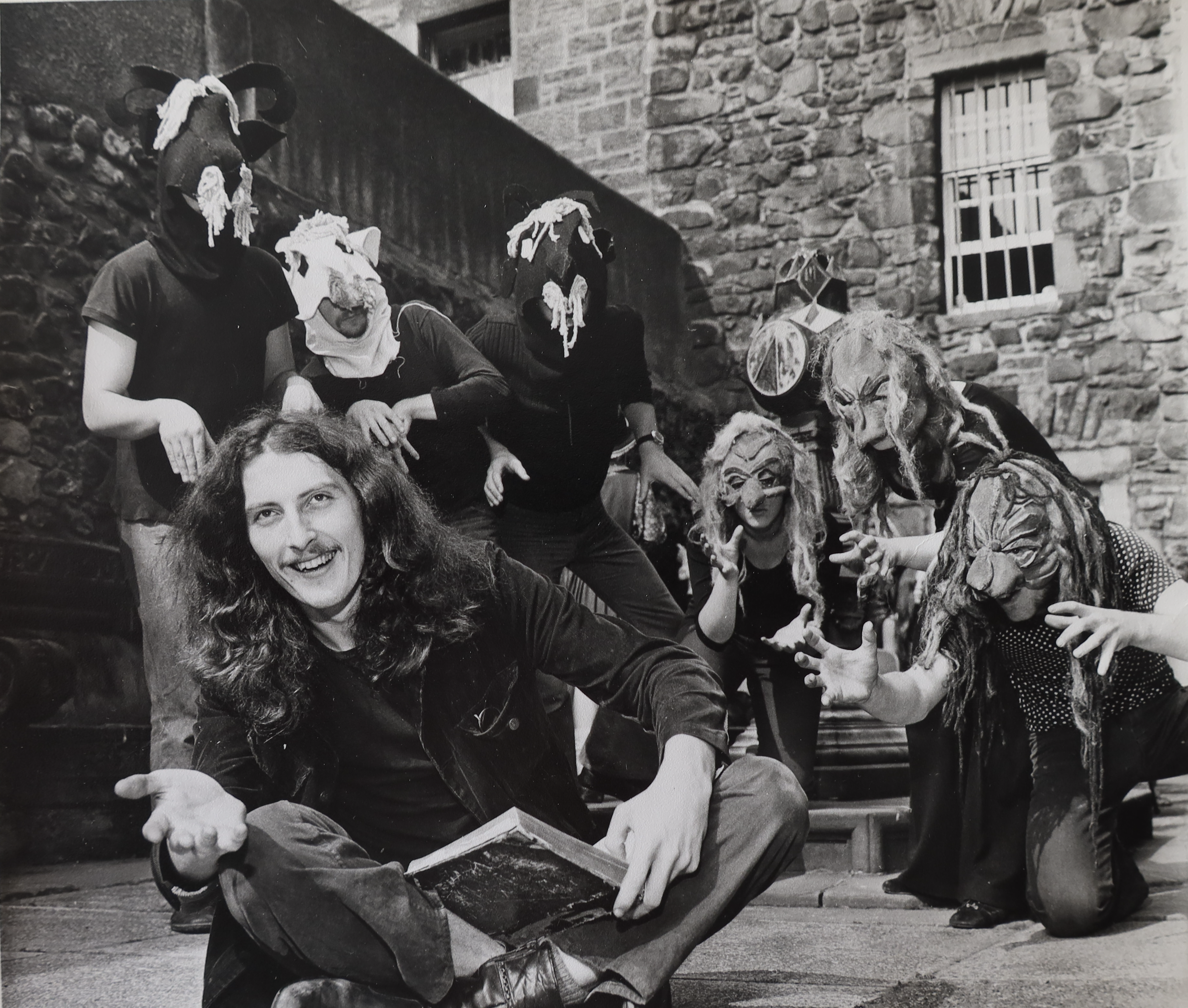
“Thank you ever so much for your support, generosity of spirit and very encouraging words...during a difficult time. Much appreciated and very much touched. As expressed in my submission a big thank you to all of you at the Hodgson Trust. What a thoughtful and meaningful gesture to split this to smaller funds to encourage and support artists in crisis...It encouraged me to invest in a research project that I feel has a great potential for the future and good heart in it”. - Athina Valha
“The award was a most valuable initiative during a difficult period. Many thanks for the opportunity it provided.” - Roger Elsgood
“Thank you so much for the time to study, think and reflect. It has been invaluable. At the time of being awarded the grant I had lost 90% of my work and had to cancel a planned period of professional development and R&D for a new project”. - Anne Langford
"I was thrilled to receive the grant from the John Hodgson Theatre Research Trust. I used it to research and outline an Actor/Carer Scheme in the Performing Arts. I’m very pleased I contacted the John Hodgson Theatre Research Trust, and very grateful for the help I received to back such a worthwhile cause, especially in the face of the Covid-19 pandemic which has caused such damage to many in the Performing Arts industry." - Natalie Law
